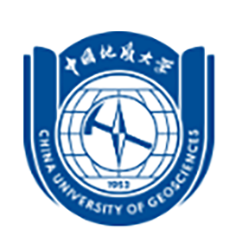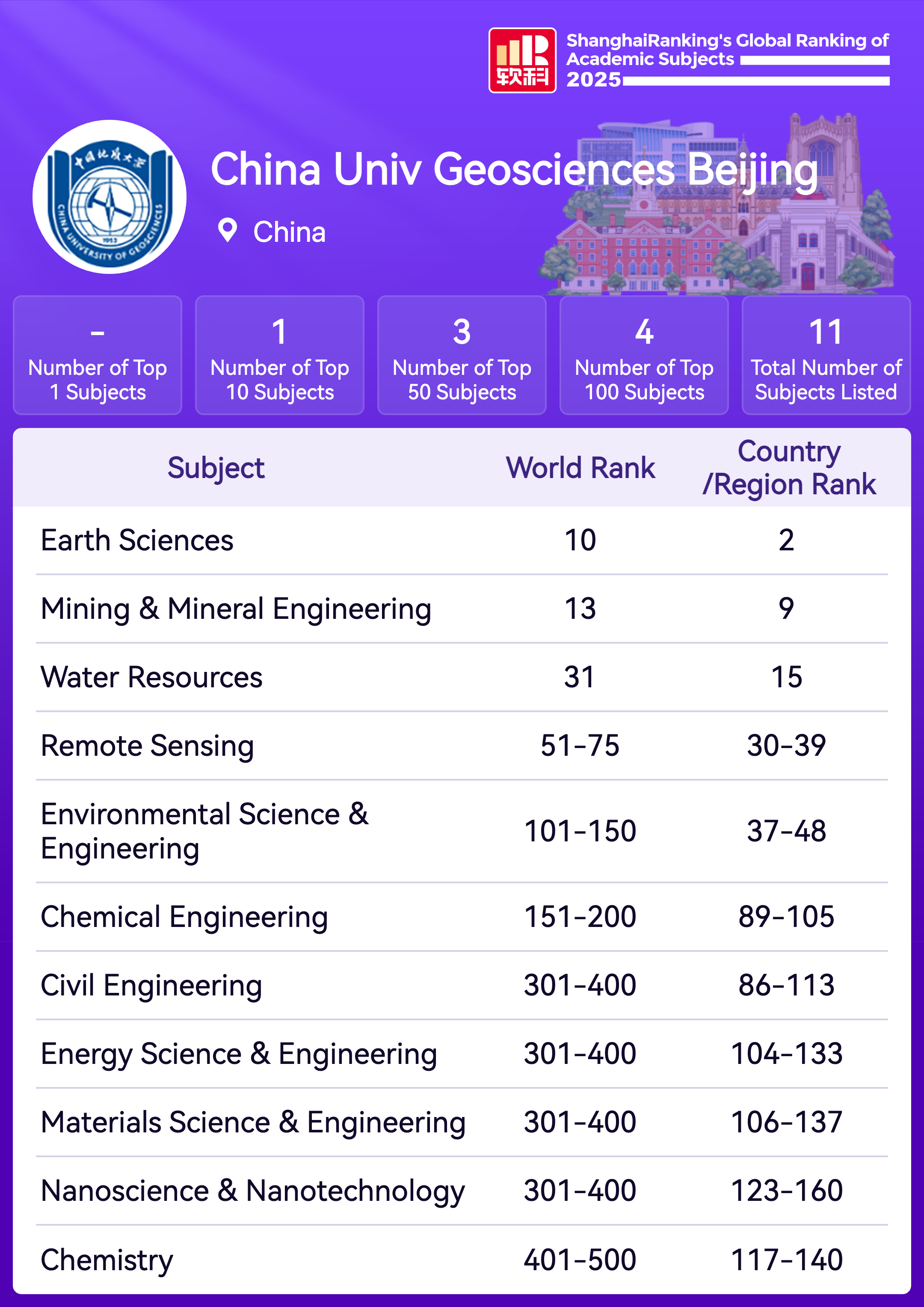 401-500
401-500 


China University of Geosciences in Beijing traces its roots to Beijing College of Geology, founded in 1952 as a result of the merger of the geological departments from Peking University, Tsinghua University, Tianjin University, and Tangshan Railway College. Early success led to its being named one of the nation’s 64 “key colleges and universities.” In 1975, the school was obliged to move to a new campus in Wuhan. In 1978, the graduate faculties relocated in Beijing under the support of Mr. Deng Xiaoping, the leader of the People’s Republic of China. In 1987, the Ministry of Education approved a plan for China University of Geosciences to develop two tertiary institutions in Beijing and Wuhan respectively, both of which have independent legal personalities. China University of Geosciences in Beijing is among the first group of China’s higher level universities designated for the state key construction of the “211” project and is one of the first 33 universities in China approved to set up graduate schools as well. In February 2000, China University of Geosciences in Beijing (heretofore “CUGB”), previously managed by the Ministry of Land and Resources, was put under the management of the Ministry of Education. In March 2005, CUGB and China University of Geosciences (Wuhan) became independent educational entities. Finally, in September 2006, CUGB was established as a joint responsibility of the Ministry of Education and the Ministry of Land and Resources. Since its foundation in 1952, China University of Geosciences in Beijing has experienced an unusual course of development: creation, expansion, re-location, reconstruction, and revitalization. CUGB has produced a large cohort of graduates equipped with the technical knowledge and professional attitudes needed to build up the nation and contribute to the flourishing of the earth sciences. At present, the university boasts nine members of the Chinese Academy of Sciences on its staff. Out of 40,000+ graduates, 24 alumni have been elected to either the Chinese Academy of Sciences or the Chinese Academy of Engineering, and more than 200 alumni have been singled out as “model workers” by provinces or ministries. As a multi-disciplinary national key university, CUGB is one of China’s main centers for educating geological researchers and professionals of all sorts. It has evolved an educational program that balances sciences, technology, arts, management, economics and law—one which emphasizes a connection between education and geology, natural resources, environment and geological engineering. CUGB has 17 colleges with a total of 47 undergraduate programs and 118 graduate programs for a master’s degree, 37 doctoral programs, 16 fields of Master of Engineering, and 9 post-doctoral research stations. At present there are 14,000 full-time students, 25000 continuing education students, 12000 independent college students enrolled with a teaching and research staff comprised of 1200. CUGB is headed by Mr. Wang Hongbing, the chairman of the university council and Prof. Deng Jun, president of the university. During its 50 years of practice, China University of Geosciences in Beijing has developed its glorious motto of “work hard, keep modest, and pursue truth and pragmatism”. Guided by the principle of scientific development, CUGB attempts to accomplish the following: it embraces a philosophy of “special and best;” it earnestly carries out the Party's policy on education; it perseveres in the socialist orientation in education provision; and CUGB cultivates innovative graduates with “good moral, sound background, wide knowledge, high profession.” The university is going forward to become a first-class international university in the field of geosciences.
 401-500
401-500 
| Subject | Rank |
|---|---|
Earth Sciences | 10 |
Mining & Mineral Engineering | 13 |
Water Resources | 31 |
Remote Sensing | 51-75 |
Environmental Science & Engineering | 101-150 |
Chemical Engineering | 151-200 |
Civil Engineering | 301-400 |
Materials Science & Engineering | 301-400 |

